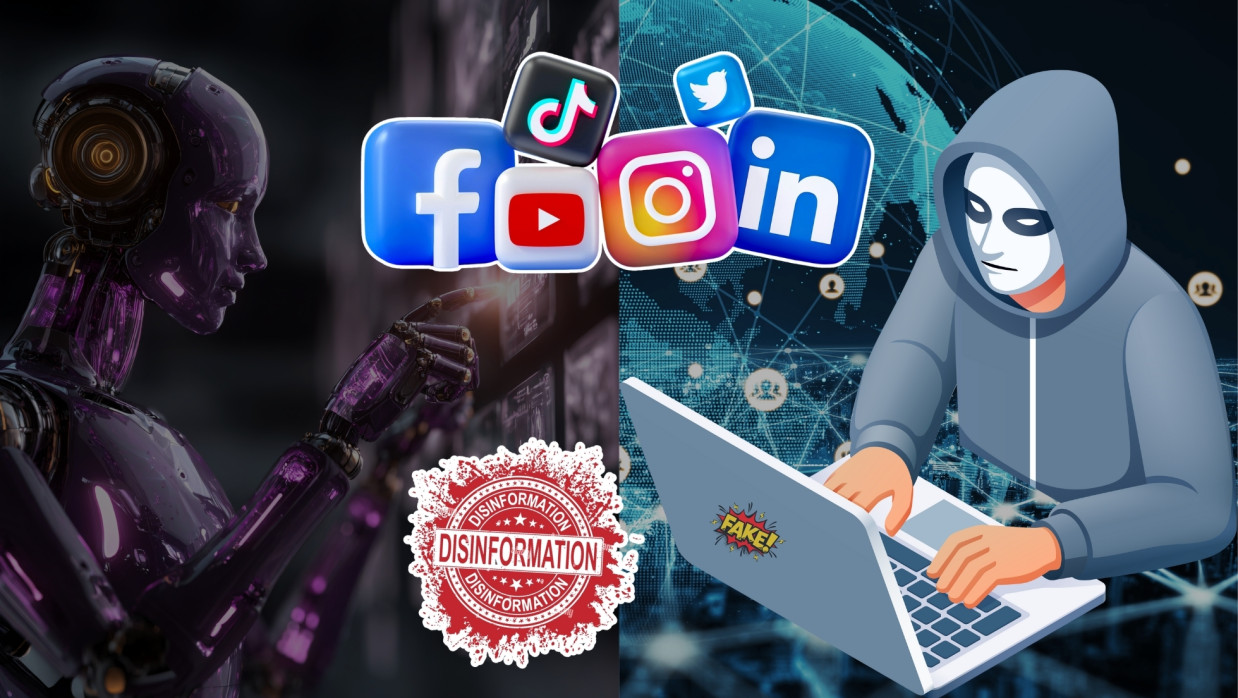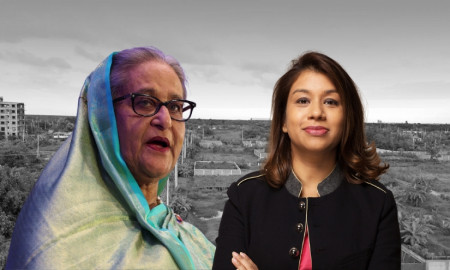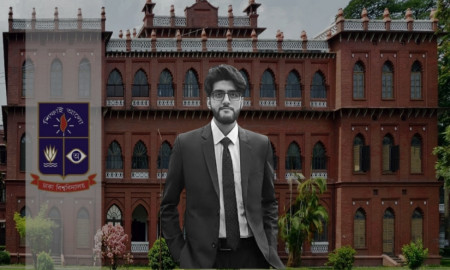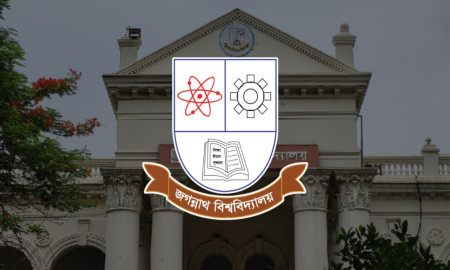Fake Photocards and AI Content Fuel Misinformation 'Epidemic', Threatening Social Cohesion

Bangladesh's social media has turned into a new "information battlefield," with a growing trend of spreading fake photocards and AI-generated images, videos, and audio. Lies have become the weapon of propaganda, while truth is lost in the algorithmic crowd. To smear political rivals, discredit popular figures, or manipulate public opinion on issues, individuals and organized groups are creating misleading cards, videos, and AI content that look exactly like mainstream media publications. These are traps of confusion disguised as credibility.
Investigations reveal that with easy access to technology and online tools like Canva or Photoshop, anyone can now create such fake cards, images, animations, and even short videos in minutes—content that anyone might believe at first glance. Many involved claim their actions are "entertainment." But in reality, this so-called "entertainment" is silently spreading poison in society.
Moreover, in the name of targeting each other, hundreds of Facebook pages, YouTube channels, and online platforms mimicking personal or mainstream media are fueling this "fake card culture." Its impact reaches from family and social relationships to the political arena.
The most alarming issue is that ordinary people can no longer distinguish which card is true and which is fabricated. Mainstream media logos, colors, and typography are copied so perfectly that confusion arises instantly. As a result, public trust in media is severely damaged. This campaign also includes derogatory remarks about women and incitement of religious communalism.
Many say the government's silence, indifference, and failure to implement effective policies have pushed this fake information and AI-based propaganda beyond control—a major threat to the country's democratic communication system. The line between truth and lies is gradually blurring, replaced by a terrifying misinformation ecosystem threatening political stability and social cohesion.
Experts claim the rise stems from unrestricted internet access, users' ignorance of media literacy, political gain, neglect of employment-education-economic stability, lack of proper law enforcement, and government apathy.
Social media scans show that on October 3, a page called "Sheikh Hasina's Soldier" shared a fake photocard using the Iqbal TV logo, claiming: "Awami League faces no barrier in elections – Election High Commissioner." Later, fact-checking platform Rumor Scanner investigated and found no such statement from the Election Commission or any official.
Edited obscene images posted on Facebook with vulgar, indecent, and defamatory comments led Dhaka University Public Administration teacher and Assistant Proctor Shehrin Amin Bhuiya Monami to file a case on November 3 at Shahbagh Police Station against journalist Mujtaba Khandaker and three others, plus unknown persons. Previously, objectionable content about her had appeared online. Left-leaning female teachers, students, and activists face similar bullying.
On November 1, BNP accused a "malicious circle" of creating a fake video using Mirza Fakhrul Islam Alamgir's voice, editing old press conference footage with AI. The video falsely showed the BNP Secretary General announcing the final MP candidate list for the 13th national election.
A fake photocard mimicking national daily Kalerkantho, quoting Bangladesh Jamaat-e-Islami Secretary General and former MP Professor Mia Golam Parwar as saying "Jamaat-e-Islami does not want Awami League banned in any way," circulated online.
Another card mimicking Amar Desh quoted him: "Sheikh Mujib is a respected figure; what's the problem if there's a provision to hang his photo?" Investigations confirmed both were false. Yet Awami League, BNP, and affiliate leaders shared them on social media.
Analysis shows over a hundred Facebook pages and social accounts copy logos of top newspapers, online portals, and TV channels. Though created for "entertainment," most spread fake cards and baseless content confusing the public. Examples include Anwar TV (copying Jamuna TV), The Delhi Star (The Daily Star), Monir Zamin (Manab Zamin), Baper Desh (Amar Desh), and Prothom Alu (Prothom Alo).
Dhaka University Criminology Assistant Professor Md. Rezaul Karim Sohag told The Daily Campus: "We see a massive rise in anonymous dissemination of misleading information on social media. First, perpetrators know a large segment believes without verification. Second, authorities must take effective action to ensure punishment for cybercrime."
Peace and Conflict Studies Chair and social analyst Dr. Sajjad Siddiqui said: "The most dangerous aspect is creating an unethical generation where lies and half-truths gain importance, while real crimes hide. In the Indian subcontinent, people haven't culturally learned where to stop with metaphorical or AI content."
He added that in Europe-America, even heads of government appear in satirical cartoons or negative AI content, but with limits. "In their context, nudity is normalized due to post-modern compromise, but in Bangladesh, carrying weed is punishable, public smoking is a crime—especially grave for women."
In contrast, such content creation in Bangladesh clashes with social and religious values. "Still, when the problem grows, insecurity spreads—especially for successful or known individuals, which shouldn't happen. This stems from unrestricted internet before nation-building and an insensitive majority."
Explaining the rise, he said: "We failed to provide jobs and good living to a large segment. Most spreaders lack social security, employability, accountability, and are economically vulnerable. They use political slogans for benefit, spreading disinformation to weaken rivals and gain status in their circles. Economics and education are primarily responsible—we never prioritized them, creating a 'redundant' population now engaged in this. Lack of law enforcement adds recklessness."
Dr. Siddiqui estimates only 2–3% use the internet ethically. "Peace journalism is nearly absent in mainstream media. Giving millions unrestricted access in such a society naturally increases recklessness. China and others use restricted systems to track and punish crimes digitally—for satisfactory solutions."
Journalism Professor Dr. Md. Mofizur Rahman said: "Technology will advance; we must provide access, education, and progress society through it. But easy access fuels propaganda. We need to assess how aware smartphone/internet users are of the dangers of spreading info/misinfo. Awareness is lacking."
He added: "When misinformation/disinformation spreads widely and is later proven false, mainstream media loses trust. People may think all sources are similar. Provide tech access but train users accordingly."
Professor Rahman noted: "Some will always commit crimes, especially during crises. For them, implement national filtering, law enforcement, and promote critical information/media literacy at all levels—even union councils. This will offer some relief."








